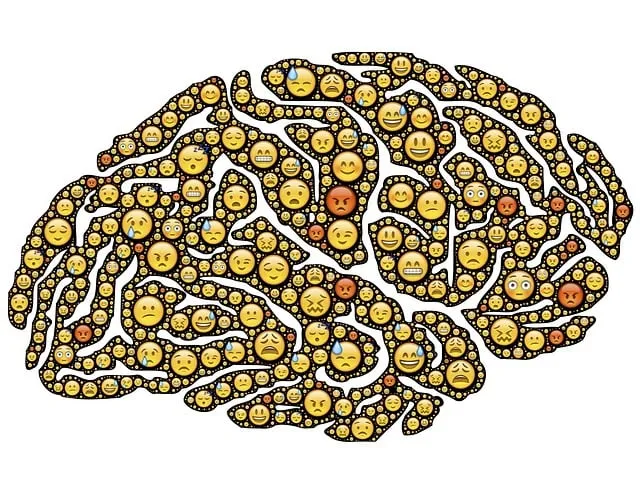In today's diverse society, cultural competency in healthcare is essential. Recognizing and respecting patients' cultural backgrounds improves communication, leads to accurate diagnoses, and creates tailored treatment plans for better patient experiences and healthier communities. Organizations like Kaiser Permanente Westminster exemplify this through training programs, language and culture understanding, innovative support services (like their mental health phone line), and improved patient care outcomes, especially in mental health services, while catering to underrepresented communities.
Healthcare provider cultural competency training is an essential aspect of modern medical practice, fostering better patient care and outcomes. This article explores three key areas: understanding cultural competency in healthcare, its profound impact on provider-patient relationships, and a case study from Kaiser Permanente Westminster highlighting effective implementation strategies. With a focus on mental health services, we delve into how such training can transform patient interactions, especially considering the Kaiser Permanente mental health phone number in Westminster as a resource.
- Understanding Cultural Competency in Healthcare: A Necessity in Modern Practice
- The Impact of Mental Health Training on Provider-Patient Relationships
- Kaiser Permanente Westminster: A Case Study on Effective Cultural Competency Implementation
Understanding Cultural Competency in Healthcare: A Necessity in Modern Practice

In today’s diverse society, cultural competency within healthcare is no longer a nice-to-have but an absolute necessity. It involves understanding and appreciating the cultural backgrounds, values, and beliefs of patients to deliver more personalized, effective care. This is especially relevant when addressing mental health concerns, as cultural sensitivity in these practices can significantly impact patient outcomes. According to Kaiser Permanente’s resources for mental health support in Westminster, recognizing and respecting cultural differences are key steps in fostering a safe, inclusive environment for all individuals seeking help.
The development of public awareness campaigns centered around mind over matter principles highlights the growing emphasis on this issue. By promoting cultural competency, these initiatives strive to improve access to quality mental healthcare services while reducing disparities. This approach ensures that providers can better communicate with diverse patient populations, leading to more accurate diagnoses and tailored treatment plans. Incorporating cultural sensitivity into mental healthcare practice not only enhances the patient experience but also contributes to building stronger, healthier communities.
The Impact of Mental Health Training on Provider-Patient Relationships

Mental health training plays a pivotal role in enhancing the relationships between healthcare providers and their patients. By incorporating mental wellness journaling exercises and guidance into training programs, like those offered by organizations such as Kaiser Permanente, healthcare professionals can improve emotional intelligence. This fosters a deeper understanding of patients’ psychological needs, leading to more empathetic interactions.
When healthcare providers are equipped with the necessary tools and knowledge about mental health issues, they become better at navigating complex patient relationships. The result is a more supportive environment where patients feel heard, understood, and empowered to seek help for their emotional well-being. This positive shift in the provider-patient dynamic can significantly impact patient satisfaction and overall mental health outcomes, especially when accessible through resources like the Kaiser Permanente mental health phone number in Westminster.
Kaiser Permanente Westminster: A Case Study on Effective Cultural Competency Implementation

Kaiser Permanente Westminster stands out as a remarkable example of effective cultural competency implementation within healthcare. This California-based organization has been at the forefront of promoting diverse and inclusive practices, significantly impacting patient care outcomes, especially in mental health services. By recognizing the importance of understanding various cultural backgrounds, languages, and beliefs, Kaiser Permanente Westminster integrated these principles into their training programs and daily operations.
The healthcare provider’s commitment to cultural competency extends to initiatives like providing mental health support through phone lines, catering to a diverse range of patients’ needs, including those from underrepresented communities. This approach not only addresses the critical issue of burnout prevention for healthcare providers but also facilitates emotional healing processes by offering accessible services that respect and celebrate individual cultural identities. Through such innovative strategies, Kaiser Permanente Westminster continues to set a benchmark for other healthcare institutions, emphasizing the integral role of cultural competency in modern medical practice.
Cultural competency training, as highlighted by Kaiser Permanente’s successful implementation in Westminster, is a game-changer for healthcare providers. By fostering understanding and empathy towards diverse patient populations, these programs significantly enhance provider-patient relationships, especially in mental health care. As evidenced by the positive outcomes at Kaiser Permanente Westminster, investing in cultural competency education can lead to improved patient satisfaction, better clinical outcomes, and more inclusive healthcare services. For those seeking expert guidance, the Kaiser Permanente mental health phone number in Westminster serves as a valuable resource for learning and support.






